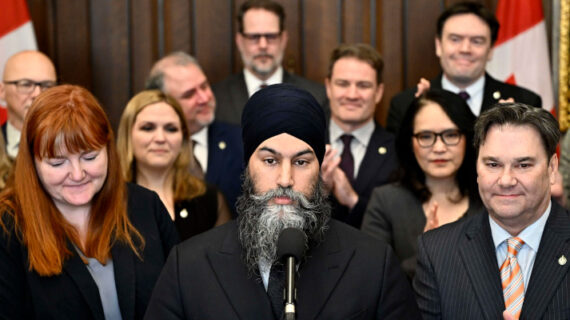- Minister of Canadian Heritage Pablo Rodriguez, who led the crafting of controversial Bill C-18, was questioned by the Senate's Transport and Communications committee on Wednesday. Meta, Facebook’s parent company, and Google are considering restricting the ability of Canadians to view online news content due to the legislation.
- Rodriguez refused to concretely answer questions as to what happens to C-18 if Meta and Google cease to share Canadian content, saying he would not comment on any hypotheses "based on threats."
- Rodriguez said the status quo for news organizations was not acceptable, and that Bill C-18 would change it for the better. He also said the legislation was not a silver bullet and would not solve all the industry’s problems.
Facebook and Google have threatened to block news content on their respective platforms if the government’s Online News Act becomes law, but Heritage Minister Pablo Rodriguez won’t discuss what the government will do in the face of “threats” from the tech companies.
Rodriguez testified Wednesday at a Senate committee considering the legislation that will require large tech companies to pay publishers for linking to their content online. The minister accused senators of recycling Facebook’s rhetoric about the bill when they pressed him about what Canadians can expect if news stories are blocked on the two platforms.
“What happens…when the platforms have disengaged from the Canadian news market and have ceased to share Canadian content?” Senator Paula Simons asked Rodriguez.
Rodriguez replied that it would be a business decision and that both platforms make a large amount of money in Canada and they would suffer a negative impact financially and reputationally.
“They have my number, I told them to reach me,” replied Rodriguez.
Simons said that was not her question and continued to press the minister.
“Maybe this is a big game of chicken,” said Simons. “I do not think that for them (Meta and Google) to leave is an economically neutral decision, but that is what they claim that they will do…I want it clearly on the record: if Facebook and Google cease to share Canadian content, what happens to C-18?”
Rodriguez said he would not comment on any hypotheses because he would not make decisions “based on threats.”
Simons repeated that his response was not an appropriate response to her question and asked if, after Meta and Google restricted the sharing of Canadian news, Bill C-18 would apply to other platforms like Bing and Amazon.
Rodriguez said that only Facebook and Google fell within Bill C-18’s scope. He went on to say the federal government had other options if Facebook and Google restricted the sharing of Canadian news.
With a laugh, Simons asked Rodriguez what those options would be specifically.
“All of the options,” Rodriguez replied. “In terms of advertising, there are different programs, there are all kinds of stuff that we do, that we decide not to do anymore, maybe we decide to increase, but those options will be explained if we get there. But we’re not there.”

When Simons continued to press Rodriguez, the minister said the committee was playing Facebook’s game, and repeated that he would not make threat-based decisions.
“It’s about the future of our news industry…it’s about upholding democracy…any democracy needs a free and independent and thriving press,” said Rodriguez, after mentioning that hundreds of news media organizations in Canada have gone out of business since 2008.
Rodriguez said the status quo for news organizations was not acceptable, and that Bill C-18 would change it for the better but he admitted the legislation was not a silver bullet and would not solve all the industry’s problems.
Bill C-18 completed its third reading in the House of Commons last December and is currently under consideration by the Senate for recommendations.

Parliamentary Budget Officer Yves Giroux was also invited by the committee to discuss his office’s cost estimate for Bill C-18. Released first in October 2022, the estimate was $5.6 million per year in costs to the federal government, while news organizations were estimated to ultimately receive $329.2 million per year from digital platforms.
Giroux acknowledged that few countries in the world had implemented similar legislation to Bill C-18, and said the estimate was partially created by observing data from similar, though not identical, legislation in Australia.




